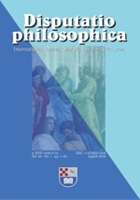The Normativity of Language Games in the Context of Psychoanalysis and Mental Health
The Normativity of Language Games in the Context of Psychoanalysis and Mental Health
Author(s): Ines SkelacSubject(s): Epistemology, Contemporary Philosophy, Philosophy of Mind, Philosophy of Language, Cognitive Psychology, Psychoanalysis
Published by: Fakultet filozofije i religijskih znanosti, Sveučilište u Zagrebu
Keywords: Sigmund Freud; language; language games; psychoanalysis; Ludwig Wittgenstein;
Summary/Abstract: Language profoundly shapes human perception and social interactions. Sigmund Freud emphasized the role of language in uncovering and addressing unconscious conflicts, particularly in the treatment of mental illness. Ludwig Wittgenstein examined the everyday use of language through his concept of “language games,” thereby revealing its normative function in shaping meaning, behavior, and societal norms. This paper compares Freud’s and Wittgenstein’s approaches to language, highlighting their shared emphasis on its normativity and therapeutic potential. While their perspectives differ — Freud focusing on the unconscious structures underlying speech and Wittgenstein on the rule–governed nature of language use — they both illustrate that language is an active force that shapes human experience rather than a passive medium. Finally, the paper argues that Freud’s insights into the symbolic dimensions of language and Wittgenstein’s emphasis on linguistic practice together suggest the need for a culturally sensitive and holistic approach to therapy.
Journal: Disputatio philosophica: International Journal on Philosophy and Religion
- Issue Year: 26/2024
- Issue No: 1
- Page Range: 51-69
- Page Count: 19
- Language: English

